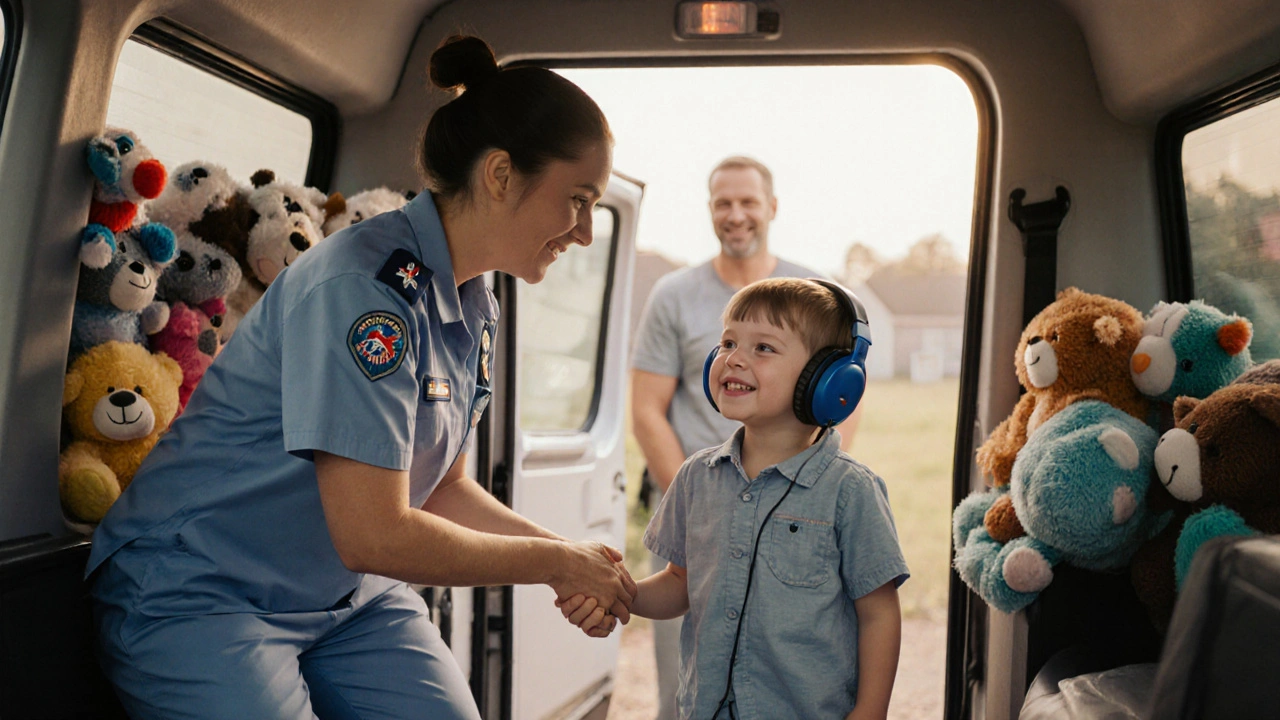Pediatric Escort Care: What It Is and How It Helps Families
When a child needs regular medical visits—whether for chemotherapy, dialysis, physical therapy, or specialist checkups—getting them there safely and calmly isn’t just helpful, it’s essential. That’s where pediatric escort care, a specialized service that provides trained, compassionate transport and support for children during medical appointments. Also known as medical escort for children, it’s not just a ride—it’s a coordinated support system designed for young patients and their families. Unlike general medical transport, pediatric escort care understands the unique needs of kids: the fear of unfamiliar places, the need for distraction, the importance of keeping parents calm, and the logistical headaches of managing equipment, medications, and scheduling across multiple clinics.
This kind of service is often used by families dealing with chronic illness management, the ongoing coordination of healthcare needs for conditions like cystic fibrosis, diabetes, or neurological disorders. It’s also common for children recovering from surgery, undergoing frequent imaging or lab work, or needing specialized therapies. The escorts aren’t drivers—they’re trained to handle medical devices, communicate with nurses, track medication schedules, and even calm a crying toddler before an MRI. They work with medical escort services, professional teams that provide non-emergency transport for patients with mobility, cognitive, or health-related challenges, but focus entirely on the developmental, emotional, and physical needs of children.
What makes pediatric escort care different? It’s the attention to detail. One escort might bring a favorite stuffed animal to a hospital visit. Another might know exactly how to explain an IV drip in a way a five-year-old won’t panic. They coordinate with schools, insurance providers, and home health aides. They’re the ones who make sure the wheelchair fits the car, the oxygen tank is charged, and the parent isn’t stuck waiting in a hallway for two hours. These aren’t luxury services—they’re lifelines for families juggling work, other children, and the emotional toll of long-term care.
Behind every smooth pediatric transport is a network of trained professionals, reliable vehicles, and clear communication systems. You’ll find this kind of support in places where families face high visit frequencies—urban hospitals with pediatric oncology wings, rural clinics with long travel distances, and specialized rehabilitation centers. The goal isn’t just to get a child from point A to point B. It’s to reduce stress, prevent missed appointments, and give parents back a little breathing room.
Below, you’ll find real stories and practical guides from families and providers who’ve seen how pediatric escort care changes outcomes. From how to find a trusted service to what questions to ask before hiring, these posts cover the details most people never think to look for—until they need them.

- Oct, 14 2025
- 0 Comments
Pediatric Appointments: How Medical Escort Services Help Families Navigate Care
Medical escort services help families get their children to pediatric appointments safely and stress-free-especially when transportation, special needs, or language barriers make it difficult. Learn how these services work and who benefits most.
read more